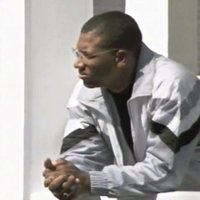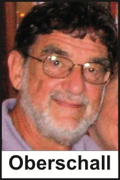Rascals case in brief
In the beginning, in 1989, more than 90 children at the Little Rascals Day Care Center in Edenton, North Carolina, accused a total of 20 adults with 429 instances of sexual abuse over a three-year period. It may have all begun with one parent’s complaint about punishment given her child.
Among the alleged perpetrators: the sheriff and mayor. But prosecutors would charge only Robin Byrum, Darlene Harris, Elizabeth “Betsy” Kelly, Robert “Bob” Kelly, Willard Scott Privott, Shelley Stone and Dawn Wilson – the Edenton 7.
Along with sodomy and beatings, allegations included a baby killed with a handgun, a child being hung upside down from a tree and being set on fire and countless other fantastic incidents involving spaceships, hot air balloons, pirate ships and trained sharks.
By the time prosecutors dropped the last charges in 1997, Little Rascals had become North Carolina’s longest and most costly criminal trial. Prosecutors kept defendants jailed in hopes at least one would turn against their supposed co-conspirators. Remarkably, none did. Another shameful record: Five defendants had to wait longer to face their accusers in court than anyone else in North Carolina history.
Between 1991 and 1997, Ofra Bikel produced three extraordinary episodes on the Little Rascals case for the PBS series “Frontline.” Although “Innocence Lost” did not deter prosecutors, it exposed their tactics and fostered nationwide skepticism and dismay.
With each passing year, the absurdity of the Little Rascals charges has become more obvious. But no admission of error has ever come from prosecutors, police, interviewers or parents. This site is devoted to the issues raised by this case.
On Facebook
Click for earlier Facebook posts archived on this site
Click to go to
Today’s random selection from the Little Rascals Day Care archives….
Click for earlier Facebook posts archived on this site
Click to go to
Today’s random selection from the Little Rascals Day Care archives….
Three jurors blamed stresses for verdict they regretted

frontline.org
Roswell Streeter
June 24, 2016
“I was a juror on the Edenton Little Rascals sex abuse case, and I heard all the facts.
“During eight months of testimony I heard no evidence to prove that Bob Kelly was guilty of any charge. I did hear children, parents and grandparents say that they believe sex abuse took place at the day care. I heard children talk about bizarre things that were supposed to have happened at the day care and other places (often being reminded by the prosecution). I heard parents say they believe sex abuse took place at the day care.
“I also heard the same parents talk about their child’s normal behavior and how they noticed no abnormalities and that their children were fine and that they didn’t believe the allegations. I also heard how children asked parents why the day care closed and stated how they liked Mr. Bob and Mrs. Betsy.
“I feel it’s very important that readers know what was going on in Edenton at the time of the allegations. We know what was said in court 2 1/2 years later. Do you ever wonder what the evidence would have been if the case went to trial six months after allegations? Well, I don’t have to wonder. Other than the evidence lost or destroyed, I heard it all, and I’ll say this to the last day of my life, that the evidence that came through the courtroom did not prove that Bob Kelly committed any kind of sex abuse.
“To the grandmother who feels jurors made fools of themselves for appearing on ‘Frontline’ to try and tell the world the truth about the Little Rascals sex abuse case, then so be it.”
Roswell Streeter
Greenville
– From “Court evidence did not prove Kelly guilty,” letter to the editor of the Greenville (N.C.) Daily Reflector (Sept. 3, 1993)
Forty-five days earlier, Streeter and four other jurors had appeared on “Innocence Lost: The Verdict,” revealing to Ofra Bikel how they came to vote guilty.
From the “Frontline” web page: “Of the five jurors interviewed, only two were fully comfortable with the verdict they had issued. In both cases, it was the children’s testimony that had convinced them. The other three jurors were troubled and said they regretted their verdict and had serious doubts about Bob Kelly’s guilt. Two jurors, Mary Nichols and Marvin Shackelford, said that worries about their personal health (Shackelford had had two heart attacks, and Mary Nichols was very ill with leukemia) had driven them to vote guilty just to resolve the endless deliberations and go home. Roswell Streeter, who at 28 was the youngest member of the jury, said he felt intimidated and confused, and finally lost all sense of perspective.”
One of the two jurors who acknowledged no doubts about Kelly’s guilt was Dennis T. Ray, who wound up in court defending (not very persuasively) his own behavior.
![]()
UNC sociologist sought to deflate moral panic
 March 6, 2013
March 6, 2013
Anthony “Tony” Oberschall, professor (now emeritus) of sociology at UNC Chapel Hill, wrote extensively – if not prominently – about the insanity of the Little Rascals case. How was Oberschall able to resist the storyline that seduced so many others?
“Before retiring from UNC in 2005,” he recalls, “I taught in universities for 40 years. One of my fields of writing and research concerned collective behavior – collective myths, false beliefs, rumors, how they originate and why they are believed.
“As the Little Rascals prosecution unfolded right before my eyes (actually, as reported in the News & Observer), it became obvious to me that this was but one more instance of moral panic, false beliefs and miscarriage of justice….”
Oberschall likens the prosecution narrative to “the widely believed Iraqi WMD story disseminated by the Bush administration in 2002. Unthinking acceptance of what the authorities are asserting, alas, happens all too often.”
In early 1993, Oberschall sent the N&O both an op-ed column and a response to a Dennis Rogers column, but neither appeared nor drew a response from the paper. (They have now been posted on the Bookshelf of Case Materials on this site.)
“At that point,” he says, “having been stonewalled, I decided to research Little Rascals in depth and wrote several times about it in scholarly publications in subsequent years.”
More about Oberschall’s research in Thursday’s post.
An expertise ‘contrary to science and common sense’
 March 7, 2013
March 7, 2013
Anthony Oberschall’s “Why False Beliefs Prevail: the Little Rascals Child Sex Abuse Prosecutions” appeared in “Essays in Honor of Raymond Boudon” (2000).
Most saliently, the UNC sociologist argues that “hysteria” and “moral panic” are inadequate to describe what happened in Edenton. Rather, he sees the town – and the Little Rascals defendants – as victims of the purveyors of “pseudoscience”:
“When child sexual abuse became a national issue, the medical profession, academic psychology and social science were just starting to study it scientifically…. The legal profession lacked experience with trial testimony of pre-schoolers and admission of hearsay testimony by parents and therapists….Meanwhile thousands of child sex abuse allegations had to be dealt with.
“In the absence of proven knowledge, a child sex abuse industry of self-appointed ‘experts’ based on pseudo-science filled the demand for training and informing child protection service workers, social workers, police investigators, prosecutors, therapists and others…. They were convinced they were saving America’s children, even though their methods and knowledge were contrary to science and to common sense. In Edenton, the prosecution and the investigators relentlessly labored to supplant common sense with false beliefs based on pseudo-science, (and) they succeeded….”
Working with UNC journalism student David Loomis on his master’s thesis detailing news coverage of the case, Oberschall “tried to survey Edenton households by mail (picked names at random from a phone book), but got less than a 10 percent return rate. It was obvious people there didn’t want anything to do with an outsider, a scholar.”
Rebuffed, Oberschall drove to Edenton himself and conducted perhaps a dozen interviews, which he made use of both in “Why False Beliefs Prevail” and in this more detailed draft working paper from 2010.
‘What may be the largest child sexual abuse trial this country has ever seen’
July 22, 2016
“FARMVILLE, N.C. – Farmville’s only courtroom has never played host to a felony trial. This week, the town’s 4,000 residents will watch a parade of jurors, lawyers, psychologists, parents and children converge on that courtroom. There, they will unfold what may be the largest child sexual abuse trial this country has ever seen: the trial of Robert F. Kelly Jr. of Edenton.
 “The trial was moved to this one-blink community in Pitt County, 65 miles west of Edenton in Eastern North Carolina, because of pretrial publicity.
“The trial was moved to this one-blink community in Pitt County, 65 miles west of Edenton in Eastern North Carolina, because of pretrial publicity.
“But the spotlight will find Farmville, if not for the unprecedented number of sexual abuse indictments, then for the sordid nature of the charges. And if not for that, then for the impact the trial – expected to last three to four months – could have on future large-scale child-abuse prosecutions.
“Jury selection is scheduled to start today….”
– From “Witnesses, jurors, lawyers mass for sexual-abuse trial” by Knight-Ridder News Service in the Baltimore Sun (July 22, 1991)
In fact, the trial would last nine months, not three or four. Although prosecutors won initial convictions of both Kelly and Dawn Wilson, for whatever reasons – surely including the eye-opening effects of Ofra Bikel’s “Innocence Lost” trilogy – the nation was spared “future large-scale child-abuse prosecutions.”
![]()











0 CommentsComment on Facebook